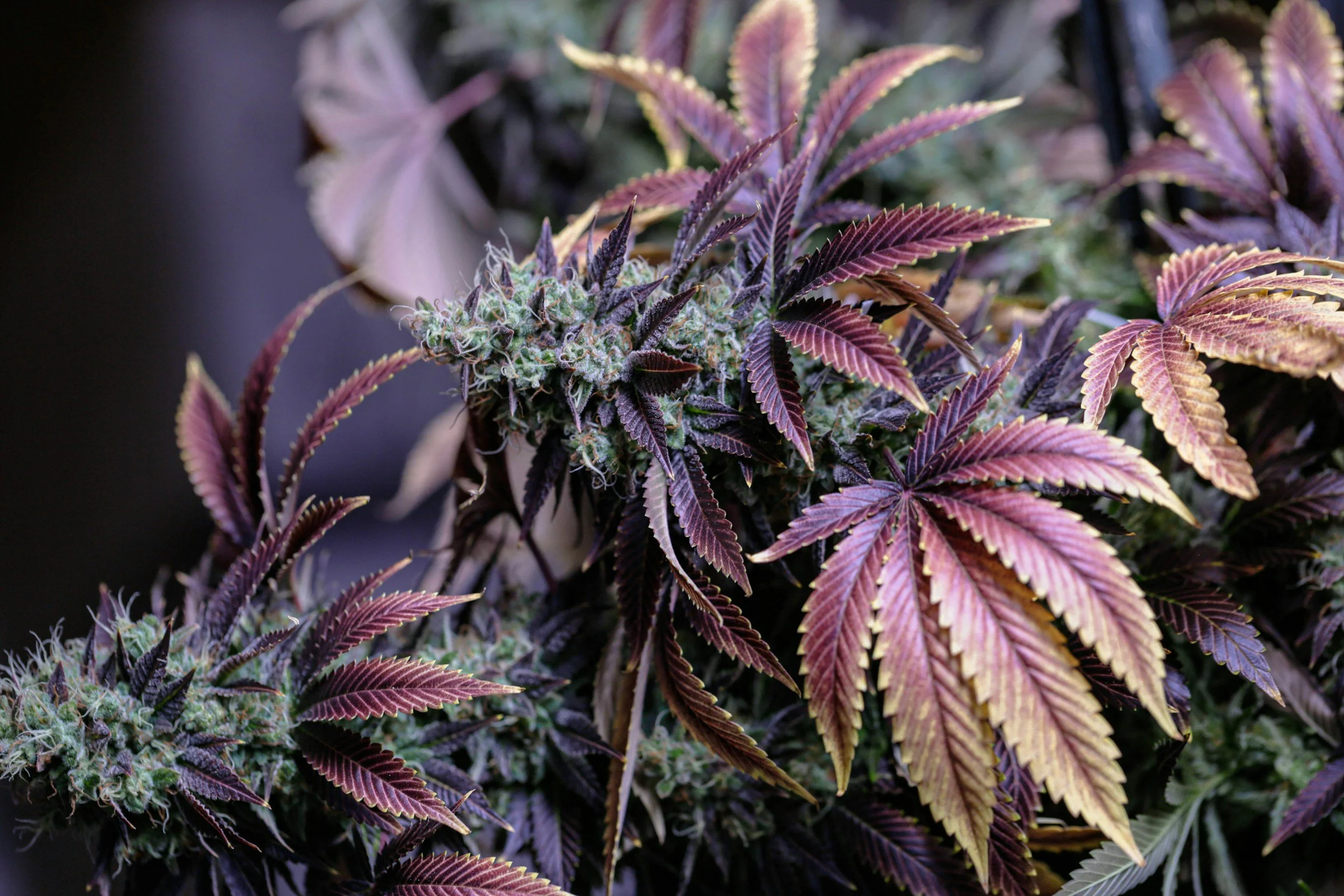How Substances Affect Kinky Play
Whether you're wielding the flogger or feeling its bite, what’s happening in your body is important to understand, especially when substances are involved.
Some kinksters enjoy altered states during play, whilst others swear by clear-headed, stone-cold sobriety. Whatever your personal preference, knowing about how different substances can impact your body and behaviour is an important step in mitigation risks associated with your play.
Alcohol
Playing while buzzed is a controversial topic in kink communities, with good reason. While a drink or two might be within the limits for players, if someone cannot safely drive a car or clearly communicate, they shouldn’t be engaging in kink or BDSM activities.
What it does
Alcohol is a central nervous system depressant. It reduces inhibition, impairs motor skills, clouds judgment, and dulls pain response. That’s why two drinks in, dancing feels easier and flirting feels bolder. It’s also why people stumble, slur, and misread social cues when they’ve had too much.
Considerations for play
Consent becomes a grey area. If someone is intoxicated, you can’t guarantee their consent has been given. Similarly, it’s next to impossible to ensure that you have their ongoing consent through a scene. For these reasons, kinksters should approach this type of play with extreme caution and a willingness to accept the risks.
Pain thresholds increase, which can lead to unintended injury. Even a couple drinks can inhibit your body’s ability to feel pain. Bottoms should be mindful of this fact, and Tops should keep in mind that pain may not be felt to its fullest intensity until hours later.
Tops can lose coordination. Tops need to keep in mind the ways that alcohol can impede coordination and grip. One misaligned strike can lead to serious injury.
Cannabis
Low doses of marijuana might work well for some people in very controlled settings, as we’ll discuss. Heavy use of THC can lead to communication breakdowns, missed safety cues, or scenes that feel great in the moment, but cause regret later.
What it does
Cannabis affects the body through the use of Tetrahydrocannabinol (THC). THC can enhance physical sensations, slow reaction times, impair memory, and alter perception. Depending on the dose and its user, marijuana can cause giggles, anxiety, dissociation, or intense body awareness.
Considerations for play
Senses can become heightened. Some kinksters find that weed heightens sensation and helps them drop into subspace or Topspace more easily. It’s important for both sides to keep in mind how THC can accelerate various headspaces.
Emotions can become heightened, too. One common side effect of THC use is an emotionally fragile state of being. This means you might find things hilarious that aren’t normally all that funny, your feelings could be hurt more than they might be if you were sober, or you could be slow to react to something. Edge play activities like Emotional SM and mindfucks should be approached with additional care if marijuana is in the equation.
Reaction time and memory are impeded. Cannabis can impair reaction time just as much as memory. Negotiations should be conducted well in advance of partaking of any marijuana. Keep in mind that safewording may be delayed if partners are high in a scene.
Hallucinogens
Scenes involving psychedelics require exceptional care, trust, and preparation. This type of play has a very high risk for consent violations and harm. For these reasons, it should be considered edge play.
What it does
Psychedelics like LSD, psilocybin mushrooms, or MDMA dramatically alter perception, time, memory, and emotional processing. These substances are known for creating vivid sensory experiences, dissolving the ego, and facilitating emotional openness or catharsis. Using psychedelics in kink should be considered edge play.
Considerations for play
Heightened sensations and emotions. Hallucinogens can trigger confusion, paranoia, or extreme vulnerability. Submitting to someone while tripping could feel amazing just as much as it could be terrifying. Having a “bad trip” can result in lasting emotional harm, as well as damage to a relationship, well after the scene.
Altered reality means altered consent. Consent is difficult to manage when reality is flexible. Be sure to negotiate any scenes extensively (while completely sober) well ahead of time. Even then, be prepared for the risk of violating consent or having your consent violated.
Communication becomes unreliable. Even with pre-negotiation, what someone agreed to sober may not track in the middle of a trip. When reality is altered, your partner may not fully grasp that you wish to stop, or worse, they may misinterpret your queues as a sign to go harder.
Stimulants
Just because your brain is sprinting doesn’t mean your body can keep up. This combo can be especially dangerous in physically demanding scenes or anything involving breath play, impact, or edge play.
What it does
Stimulants like cocaine, Adderall, or methamphetamines increase heart rate, reduce fatigue, and elevate mood. Users may feel confident, euphoric, energetic, and physically invincible. At least, they feel that way until the crash hits. Utilizing stimulants in a kink activity should be considered edge play.
Considerations for play
It causes feelings of overconfidence. Stimulants can make people feel hyper-focused or overconfident, which may result in unsafe levels of pain, endurance, or risk-taking.
Sensory responses are muted. Stimulants can suppress key cues from your brain such as hunger, thirst, and the need to rest. If you can’t feel a need to rest, you won’t be able to tell if a scene has become too much. Tops won’t be able to accurately calibrate how hard they are hitting, just as much as bottoms won’t feel the full brunt of the impact.
Some people enter fragile emotional states. Most impact Tops will tell you that it’s a bad idea to play when you’re in a bad mood. With stimulants, high emotional intensity can spiral into aggression, panic, or emotional crash as the substance wears off. Be prepared for these emotions to be a part of the experience if you engage in any scenes.
Prescription Medication
Prescription medications are a common part of human existence these days. Odds are that you’ve played with someone who takes at least one medication. Kinksters should communicate with one another about the drugs they are taking prior to play.
What it does
From SSRIs (antidepressants) to beta blockers, blood pressure meds, or painkillers, prescription drugs can dramatically shape how your body reacts to stress, arousal, stimulation, and pain.
Considerations for play
Antidepressants can influence how your body reacts. From delays or dampening of orgasms, to reduced pain perceptions, to increased risk of bruising, it’s important to keep in mind how your body reacts to your medication.
Drowsiness can impede consent and safewording. One of the most common side effects with almost every medication is a feeling of drowsiness. This can complicate ongoing consent and potentially delay your ability to safeword if you need to. If drowsiness is a side effect you feel, it’s important to communicate this with your partner, and perhaps incorporate regular check-ins into a scene.
Avoid restriction when on blood pressure meds. Activities like bondage and breath play come with an added risk if you’re on blood pressure or heart-related drugs.
A Note on Consent
When substances are involved, especially mind-altering ones, the ability to fully understand and communicate that risk becomes murky. Some parties and events are explicitly substance-free for this reason. Others might allow play under the influence, but with strict boundaries. Wherever you’re playing, it’s worth discussing expectations, rules, and personal boundaries around substance use.
Here are some questions to consider when playing with mind-altering drugs:
Can everyone involved give and revoke consent clearly?
Is there a sober party present to monitor safety?
What safety plans are in place for physical or emotional emergencies?
Remember: altered states, no matter how fun or intentional, always alter consent and safety. That doesn’t automatically mean a hard “no” for everyone, but it does mean that extensive negotiations are a requirement.
This article is intended for informational and educational purposes only. It does not constitute medical advice or guidance. If you have specific questions about how substances might interact with your body or existing health conditions, please consult a qualified physician or medical professional.





